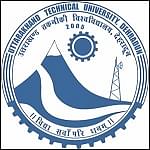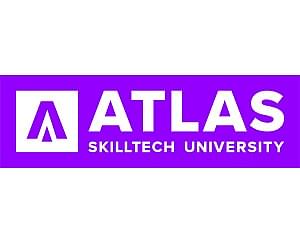Introduction about M.Tech
Electrical Engineering
Best M.Tech
Electrical Engineering is an advanced graduate program designed to provide students
with in-depth knowledge, specialized skills, and advanced expertise in the
field of electrical engineering. Building upon the foundational concepts
learned at the undergraduate level, the M.Tech program offers an opportunity
for students to delve deeper into specific areas of electrical engineering and
engage in advanced research and development.
M.Tech
Electrical Engineering programs are typically designed to cater to the diverse
needs of students interested in various sub-disciplines within electrical
engineering, such as power systems, control systems, electronics,
telecommunications, signal processing, renewable energy, and more. The program
aims to equip students with the theoretical knowledge, analytical tools, and
practical skills required to address complex engineering challenges and
contribute to technological advancements in the field.
How I can apply for admission toM.Tech
Electrical Engineering?
M.Tech Electrical Engineering admission 2024-25, follow these general steps:
1. Research Programs:
Begin by researching universities or
institutions that offer M.Tech programs in Electrical Engineering. Look for
institutions with strong faculty, research facilities, and relevant
specializations that align with your interests and career goals.
2. Check Eligibility Criteria:
Review the eligibility criteria for admission
to the M.Tech Electrical Engineering program at each institution. Ensure that
you meet the minimum educational qualifications, such as completion of a
relevant undergraduate degree (e.g., B.Tech in Electrical Engineering) with
specific subjects and minimum grades.
3. Entrance Exams:
Many universities require applicants to take
entrance exams as part of the admission process. Common entrance exams for
M.Tech programs in India, for example, include GATE (Graduate Aptitude Test in
Engineering) and other university-specific entrance exams. Prepare for these
exams by studying the syllabus and practicing sample papers.
4. Fill out Application Forms:
Once you've identified the institutions you
want to apply to and met the eligibility criteria, fill out their application
forms. Provide accurate and complete information, including your personal
details, educational qualifications, exam scores, and any other required
documentation.
5. Submit Required Documents:
Along with the application form, you'll likely
need to submit supporting documents such as transcripts, certificates, identity
proof, and passport-sized photographs. Ensure that you have all the necessary
documents ready and submit them as per the instructions provided by the
institution.
6. Pay Application Fees:
Some institutions require applicants to pay a
non-refundable application fee. Make sure to pay the fees within the specified
deadline to complete the application process.
7. Entrance Exam Scores:
If applicable, ensure that your entrance exam
scores are sent directly to the institutions where you're applying. This may
involve specifying the institutions as recipients when registering for the
exams or sending score reports separately.
8. Admissions Process:
After submitting your application, the institution
will review your application, including your academic records, exam scores, and
any other relevant factors. If shortlisted, you may be called for further
rounds of selection, such as interviews or counseling sessions.
9. Admission Offer:
If you're selected for admission, you'll
receive an admission offer from the institution. This offer will include
details such as the program start date, fee structure, and any other
instructions for enrollment.
10. Acceptance and Enrollment:
Upon receiving the admission offer, follow the
instructions provided by the institution to accept the offer and complete the
enrollment process. This may involve paying admission fees, submitting
additional documents, and attending orientation sessions.
It's essential to stay organized and
keep track of application deadlines for each institution you're applying to.
Additionally, don't hesitate to reach out to the admissions office if you have
any questions or need clarification during the application process.
What is the
eligibility forM.Tech Electrical Engineering?
M.Tech Electrical Engineering in best college
of indiamay vary between universities and
countries. However, here are the general eligibility requirements:
1. Educational Qualifications-:
Applicants must have completed a relevant
undergraduate degree, such as Bachelor of Technology (B.Tech) or Bachelor of
Engineering (B.E.), in Electrical Engineering or a closely related field from a
recognized university or institution.
2.Minimum Aggregate Marks:
Many universities and institutions have a
minimum aggregate marks requirement for admission to M.Tech programs. This
minimum percentage may vary between institutions but generally ranges from 55%
to 60% or equivalent grade.
3. Entrance Exams:
Admission to M.Tech programs, including
Electrical Engineering, is often based on entrance exams. In countries like
India, common entrance exams include GATE (Graduate Aptitude Test in
Engineering) and other university-specific entrance exams. Candidates are
required to qualify these exams with minimum scores as specified by the
respective institutions.
4. Work Experience :
Some universities may prefer or require
candidates to have relevant work experience in the field of electrical
engineering. Work experience requirements, if any, may vary between
institutions.
5. Other Requirements:
Depending on the institution and country,
there may be additional requirements such as language proficiency tests (e.g.,
TOEFL or IELTS for non-native English speakers), statement of purpose (SOP),
letters of recommendation (LOR), and specific eligibility criteria for reserved
categories (such as quotas for SC/ST/OBC candidates in India).
It's essential for prospective
applicants to carefully review the eligibility criteria specified by the
institutions they are interested in applying to. Institutions usually provide
detailed information about eligibility requirements on their official websites
or in their admission brochures. If you have any doubts or questions about
eligibility criteria, it's advisable to contact the admissions office of the
respective institution for clarification.
How long does
it take to complete M.Tech Electrical Engineering?
M.Techcollege in Electrical Engineering typically ranges from two to three years,
depending on several factors including the country, university, program
structure, and any additional requirements or options.
1. Two-Year Programs:
The standard duration for most M.Tech
programs, including Electrical Engineering, is two years. These programs follow
a traditional semester-based academic calendar, with students completing
coursework, laboratory sessions, projects, and sometimes internships or
industry training over the two-year period.
2. Three-Year Programs:
Some universities offer integrated M.Tech
programs that combine undergraduate and master's-level studies in Electrical
Engineering. These programs are often structured as three-year programs, where
students earn both a bachelor's and master's degree upon completion. The
additional year allows students to delve deeper into advanced topics, undertake
research projects, and gain specialized skills in their chosen field.
The specific duration of the program
may also be influenced by factors such as co-op or internship requirements,
study abroad opportunities, and any academic or extracurricular activities that
students choose to pursue during their graduate studies.
Overall, whether completing the
program in two years or three years, M.Tech graduates in Electrical Engineering
emerge with advanced knowledge, skills, and expertise to excel in the field.
They are prepared to pursue diverse career opportunities in industries such as
power generation and distribution, telecommunications, electronics, automation,
and more, or further their academic pursuits through doctoral studies or
research positions.
What is the syllabus forM.Tech Electrical
Engineering?
M.Tech
Electrical Engineeringsyllabusmay vary between
universities and programs. However, here's a general overview of the syllabus
covering key areas typically included in such programs:
1.
Advanced Mathematics:
·
Advanced Engineering Mathematics
·
Numerical Methods
·
Optimization Techniques
·
Probability and Random Processes
2. Advanced
Electrical Engineering Core Courses:
·
Advanced Electrical Machines
·
Power System Analysis and
Control
·
High Voltage Engineering
·
Power Electronics and Drives
·
Advanced Control Systems
3. Specialized
Elective Courses:
·
Renewable Energy Systems
·
Smart Grid Technologies
·
Electric Vehicles and Energy
Storage
·
Power Quality and Reliability
·
Advanced Signal Processing
4. Advanced
Electronics and Communication:
·
Advanced Semiconductor Devices
·
Microwave Engineering
·
Wireless Communication Systems
·
Digital Signal Processing
·
Antenna Theory and Design
5.
Advanced Power System Courses:
·
FACTS and HVDC Transmission
·
Power System Protection
·
Distribution System Automation
·
Power System Optimization
·
Power Plant Engineering
6. Research
Methodology and Project Work:
·
Research Methodology
·
Thesis Writing and Presentation
·
Project Work and Laboratory
Assignments
·
Seminar Presentations
·
Industry Internship
7.
Electives and Specializations:
Depending on the university and program structure, students may
have the option to choose elective courses in specialized areas such as Control
Systems, Power Electronics, Power Systems, Signal Processing, Communication
Engineering, Renewable Energy, and more.
8.
Laboratory Work and Projects:
Practical sessions, laboratory experiments, and project work are
integral parts of the M.Tech Electrical Engineering program. Students get
hands-on experience in designing, simulating, and implementing advanced electrical
systems and technologies.
9. Seminar
Presentations and Workshops:
Students may be required to attend seminars, workshops, and
conferences related to electrical engineering to stay updated with the latest
developments in the field and enhance their research and presentation skills.
10.
Comprehensive Examination and Thesis Defense:
Towards the end of the program, students are typically required
to pass a comprehensive examination covering the core areas of electrical
engineering. They also need to conduct independent research, write a thesis
based on their findings, and defend their thesis before a panel of experts.
It's important to note that the syllabus may evolve over time to
incorporate advancements in the field and cater to industry needs. Prospective
students should review the detailed syllabus provided by the universities they
are interested in to get a better understanding of the courses and
specialization options offered in the M.Tech Electrical Engineering program.
Conclusion:
In conclusion, a Master of Technology in Electrical
Engineering offers an advanced and comprehensive education that equips students
with specialized knowledge, advanced skills, and practical experience in the
field. Through a blend of theoretical coursework, hands-on laboratory work, and
research projects, students delve deep into various sub-disciplines of
electrical engineering and emerge as highly skilled professionals ready to
tackle complex engineering challenges and contribute to technological
advancements.












